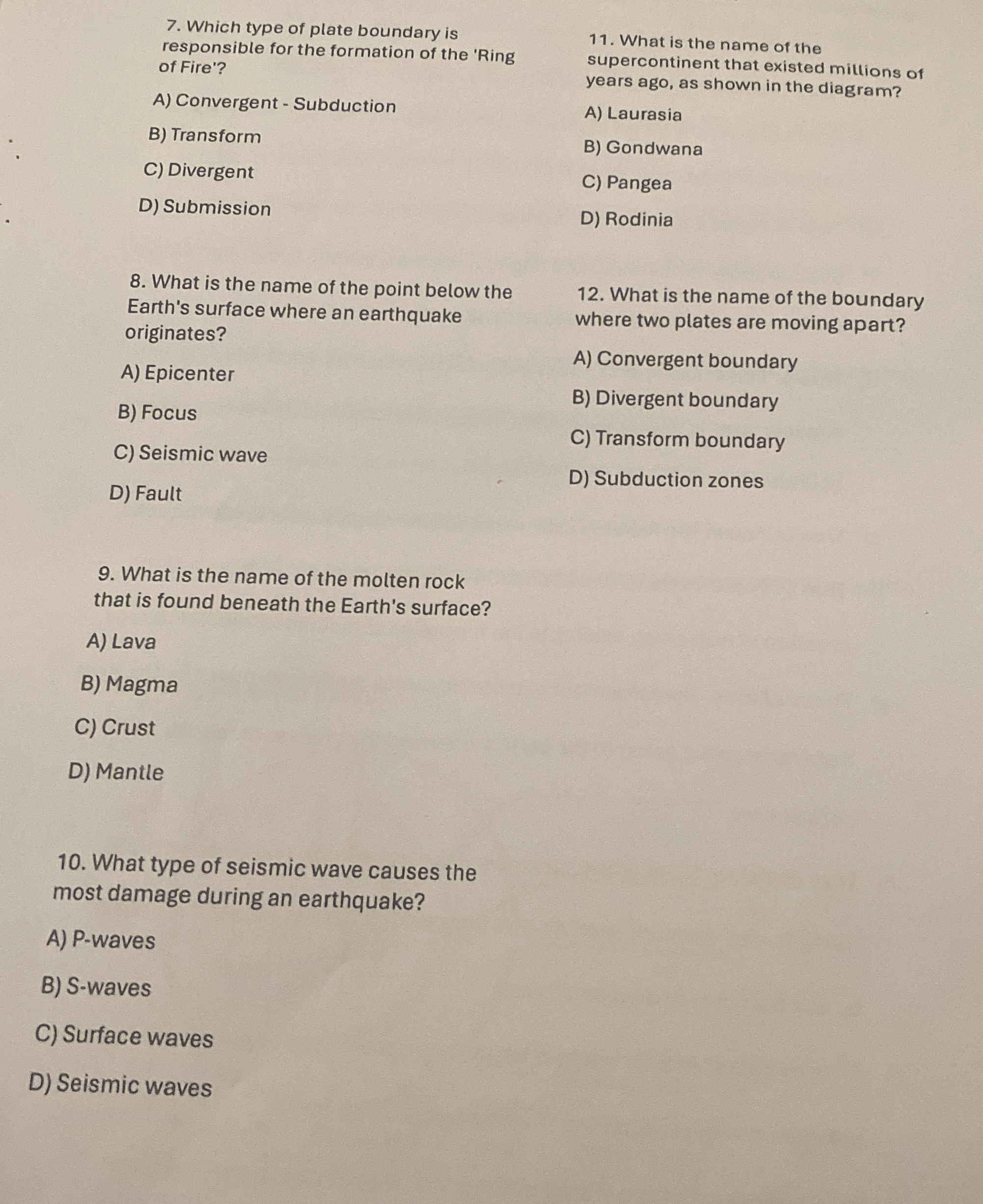7. Which type of plate boundary is responsible for the formation of the 'Ring of Fire'? 8. What is the name of the point below the Earth's surface where an earthquake originates? 9... 7. Which type of plate boundary is responsible for the formation of the 'Ring of Fire'? 8. What is the name of the point below the Earth's surface where an earthquake originates? 9. What is the name of the molten rock that is found beneath the Earth's surface? 10. What type of seismic wave causes the most damage during an earthquake? 11. What is the name of the supercontinent that existed millions of years ago? 12. What is the name of the boundary where two plates are moving apart?

Understand the Problem
The question is asking about various geological concepts related to earthquakes, plate tectonics, and the structure of the Earth. It covers topics such as types of plate boundaries, seismic waves, and molten rock.
Answer
1. A, 2. B, 3. B, 4. C, 5. C, 6. B
- A) Convergent - Subduction 2. B) Focus 3. B) Magma 4. C) Surface waves 5. C) Pangea 6. B) Divergent boundary
Answer for screen readers
- A) Convergent - Subduction 2. B) Focus 3. B) Magma 4. C) Surface waves 5. C) Pangea 6. B) Divergent boundary
More Information
The Ring of Fire is primarily formed by convergent plate boundaries, particularly subduction zones, where one plate moves under another causing volcanic activity. The focus is the point where an earthquake starts beneath the surface, and magma refers to the molten rock beneath the Earth's crust. Surface waves, which travel across the Earth's surface, cause the most damage during an earthquake due to their larger amplitude. Pangea was the supercontinent that existed millions of years ago, and divergent boundaries are where plates move apart, leading to new crust formation.
Tips
Confusing the epicenter with the focus is common. The epicenter is the point directly above the focus on the Earth's surface.
Sources
- Plate Tectonics and the Ring of Fire - National Geographic Education - education.nationalgeographic.org
- The Science of Earthquakes | U.S. Geological Survey - USGS.gov - usgs.gov
- Ring of Fire | Definition, Map, & Facts | Britannica - britannica.com
AI-generated content may contain errors. Please verify critical information